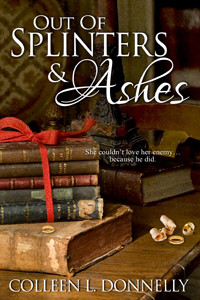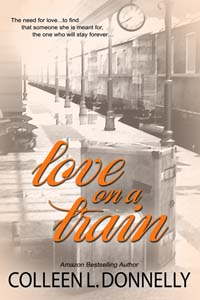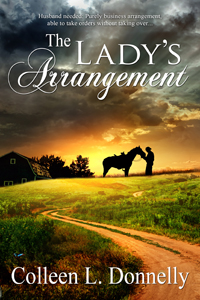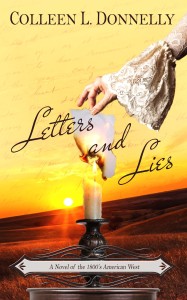Crowned Heart winner and Rone Finalist
She wrote for him and he carved for her according to Amabile’s novels, she a young German author and he a US runner in Hitler’s Olympics. An explosion sent him home to the US and left her pronounced dead in Berlin. Until her stories surface years later, bringing with them enough evidence Amabile’s characters may not have been fictional. Two families – one in Germany and one in the US – want to know if the evidence is enough to prove someone unexpected lies in their backgrounds. Two armies want to know, also, as they search for the man and woman accused of interfering with secreted military information.
Available at Amazon:
In AUDIO as well
The moment Martha noticed Raymond on the train, everything her mother warned against erupted – romantic notions, palpitating heart, the desire to write it all in a novel. Martha lived and wrote that love story until the day Raymond handed her a sketch. “Want to see a picture of the girl I plan to marry?” The penciled profile resembled Martha… But when Raymond went away, she knew. She wasn’t the girl he planned to marry.
David was her father’s apprentice, everything Martha’s mother said made a good husband – hardworking, no romantic nonsense, no tolerance for writing about it. Martha added a fictional happy ending to her and Raymond’s story and published it. Cleansed herself of romantic love, and prepared to marry David. Until a copy of her book appeared. Full of sketches – Raymond’s version of their love story, drawings that enticed her heart to beat once again – for the wrong man.
“Love on a Train” – A story of the right person at the wrong time.
Available at Amazon:
In AUDIO as well

Asked For
Lana was young when Cletus asked for her. Barely more than a girl, he offered her a home and her grandmother a pittance to survive on. He cared nothing about pretty and had no desire to honor a bride. All he wanted was a wife young enough to give him sons.
Lana gave Cletus more daughters than sons, lastly giving him James, the one Cletus referred to as That Boy, denying James was his. Two other men recognized what Cletus dismissed about his wife. Jim never thought she’d be taken away so young to be someone else’s; and Mr. Morgan remarked to James, “Your mother’s the most beautiful woman I’ve ever known.”
Did she or didn’t she? Was Lana faithful or not? James has the key, That Boy who looks nothing like Cletus, but who walks in his shoes more than anyone else.
Available at Amazon
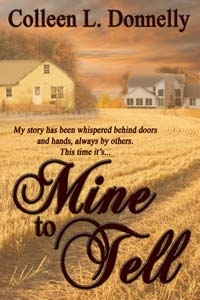 Mine to Tell
Mine to Tell
Amazon #1 Best Seller, Readers Crown Award, and Crowned Heart winner
Annabelle Crouse defies her family shame by opening up her great-grandmother’s shunned life. And the boarded-up house Julianne Crouse had been relegated to by an unforgiving husband after an unexplained absence. His accusation of betrayal has tainted the Crouse women with disgrace for years, and Annabelle wants freed. Pressing through cobwebs and dust, she finds hidden clues and the coded story left behind by her great-grandmother — Why did she go? And why did she return? Only one person, a man she grew up with but never noticed, stands with Annabelle as she discovers the parallels between her life and her great-grandmother’s story–two women, generations apart, daring to experience what love truly is.
Available at Amazon
http://www.amazon.com/Mine-Tell-Colleen-L-Donnelly/dp/1628300027/ref=sr_1_1?ie=UTF8&qid=1401055675&sr=8-1&keywords=mine+to+tell
In AUDIO as well

Sonata Contineo
The nearly sixty-year-old pamphlet Rachel found contained everything her best friend, Lane, longed to know about the obscure history of his deceased great-grandfather. It touted the pianist’s musical prowess, his success as a college music professor, and his uncanny knack for bringing out the best in his piano students. Rachel couldn’t wait to show Lane her find, but the penciled-in comment at the bottom of the first page stopped her cold. “Justifiably shot in the back by his wife one morning as he was dressing, because of another woman.”
Set on a course of unraveling the truth about the 1930’s life and murder of Lane’s great-grandfather, Rachel discovers parallel truths about herself and Lane as she opens the story of his great-grandparents and the woman who was his great-grandfather’s supposed lover.
Available at Amazon
http://www.amazon.com/Sonata-Contineo-Colleen-Donnelly-ebook/dp/B00NJZHHEA/ref=sr_1_1?ie=UTF8&qid=1447689991&sr=8-1&keywords=sonata+contineo
Neither Rex nor Regina wants a spouse, but they do have needs.
Ranger Rex Duncan needs a false identity just long enough to uncover a ring of Kansas ranch thieves. Answering Regina’s ad for a temporary husband, he leaves his beloved red dirt of Oklahoma to assume that disguise. But the most obstinate woman he’s ever known confounds his assignment, and with hair the red color that has always made his heart beat a little faster.
Regina Howard needs a new Mrs. in front of her name just long enough to reclaim her deceased husband’s ranch, since Kansas law won’t allow women to own property. When Rex answers her ad for a husband who can take orders as part of a brief business arrangement, she finds this stubborn man ignores her every command. Yet a good man is far more than just a name…
Available at Amazon
In Audio as well
Louise Archer boards a westbound train in St. Louis to find the Kansas homesteader who wooed and proposed to her by correspondence, then jilted her by telegram – Don’t come, I can’t marry you. Giving a false name to hide her humiliation, her lie backfires when a marshal interferes and offers her his seat.
Marshal Everett McCloud intends to verify the woman coming to marry his homesteading friend is suitable. At the St. Louis train station, his plan detours when he offers his seat to a captivating woman whose name thankfully isn’t Louise Archer.
Everett’s plans thwart hers, until he begins to resemble the man she came west to find, and she the woman meant to marry his friend.
Available at Amazon
Amazon